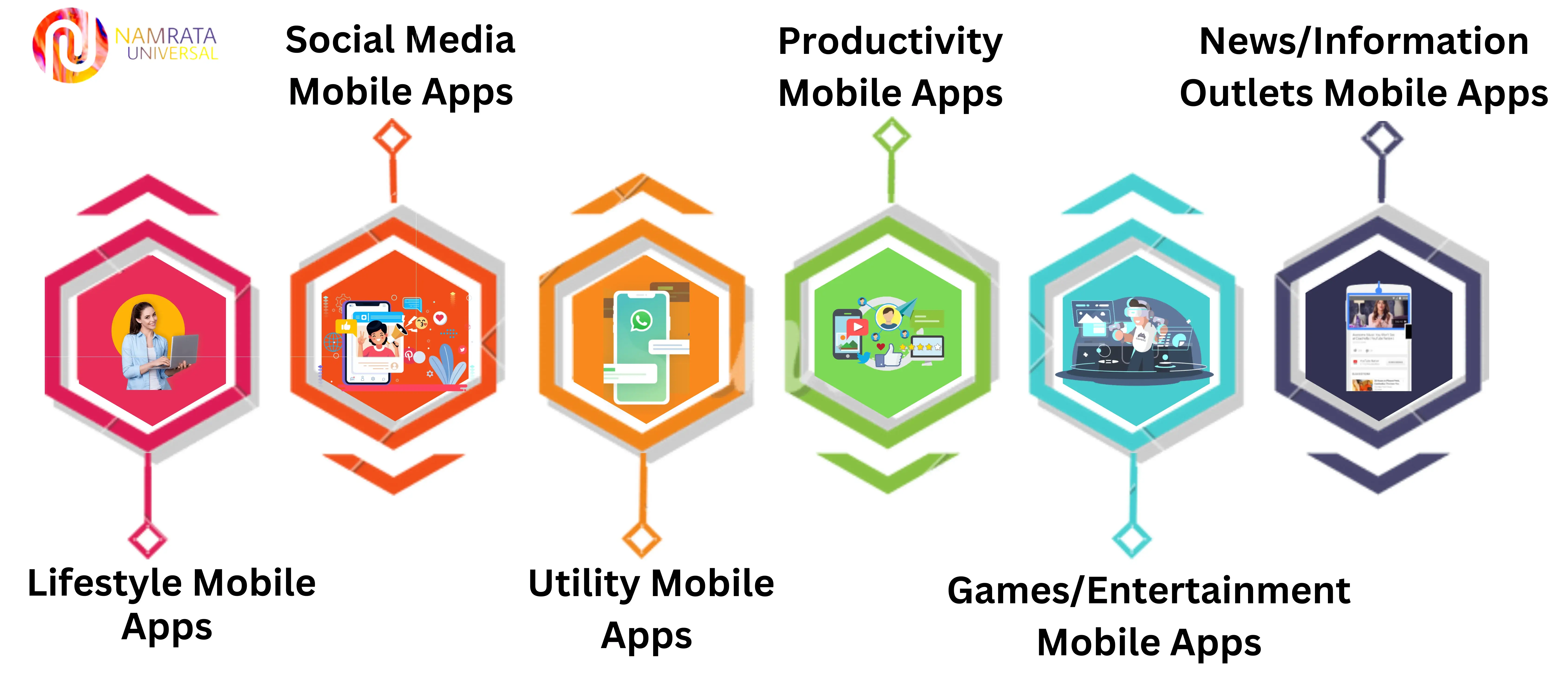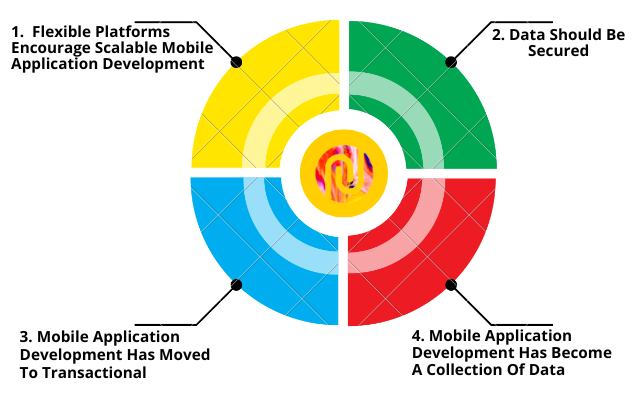Mobile Application Development is the process of writing software for smartphones, tablets and digital assistance, basically for android and iOS operating system. Mobile application is very easy to create and it can be preinstalled on the device and also downloaded from a mobile app store. Mobile application are created using programming languages like Java, Swift, C# and HTML5. Mobile applications are widely used in different fields like retail, telecommunications and e-commerce, insurance, healthcare, etc. to meet user expectations for real-time in a convenient way to conduct transactions and access information. Microsoft Word, Facebook, Adobe Photoshop, Spotify, MyFitnessPal etc. are some of the examples of mobile application.
User interface (UI) and User Experience (UX) design is the second phase of mobile application development process but these are important element for developing mobile application. User interface is the process by which the user interacts with mobile application. It consists of all the controls, buttons, blocks and elements of the mobile apps as well as selecting colors, corporate identity and the latest design principles. It is aimed at providing convenient, enjoyable and effective interaction between the user and the mobile app.

On the other hand, user experience (UX) provides the best experience for the user with the ease of usage and the feel on how the user gets an impact on establishing your business value. UX should be clear, comfortable, User-friendly and should work to convert your users into loyal customers.

• Increasing visibility.
• Cultivating customer loyalty.
• Building a stronger brand.
• Providing more value to your customers.
• Increasing higher customer engagement.
• Works as direct marketing channel.
• Reduction in cost.
• Boosting profit.
• Providing better customer services.
• Offers various payment mode while online shopping.


• Choosing the right framework.
• Define company’s overall strategies.
• Identify your users.
• Estimate your resources.
• Choose your development platform.
• Choose between native and hybrid app.
• Ensure data security.
• Prepare your marketing strategy.
• Leverage the data generated by mobile apps.